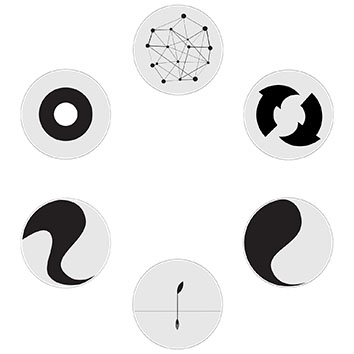Ecological Literacy in Design Education - A Theoretical Introduction
DOI:
https://doi.org/10.7577/formakademisk.1405Emneord (Nøkkelord):
design education, sustainability, ecological literacy, environment, systems designSammendrag
Sustainability educators developed the concept of ecological literacy to provide a basis for understanding environmental problems and developing new capacities and critical skills to respond effectively. This paper presents a theoretical introduction to ecological literacy for design education. It starts with a philosophical overview of why ecological literacy is necessary, including details of some of the planet’s vital signs. The paper then describes six ecological principles (networks, nested systems, cycles, flows, development and dynamic balance) along with associated design concepts (resilience, epistemological awareness, a circular economy, energy literacy, emergence and the ecological footprint). The final section explains why critical ecological literacy is necessary to make the work of transforming unsustainable conditions and designing sustainable ways of living possible.
Cover image: Principles, Ecolabs, 2014

Nedlastinger
Publisert
Hvordan referere
Utgave
Seksjon
Lisens
- Forfatteren(e) beholder sin opphavs- og kopieringsrett til eget manuskript, men gir tidsskriftet varig rett til 1) å fremføre manuskriptet for offentligheten i den opprinnelig publiserte digitale form, og 2) å registreres og siteres som første publisering av manuskriptet.
- Forfatteren må selv forvalte sine økonomiske kopieringsrettigheter overfor eventuell tredjepart.
- Tidsskriftet gir ingen økonomisk eller annen kompensasjon for innsendte bidrag, medmindre det er gjort særskilt avtale om dette med forfatteren(e).
- Tidsskriftet plikter å arkivere manuskriptet (inklusive metadata) i den opprinnelig publiserte digitale form, i minst ett dertil egnet åpent tilgjengelig langtidsarkiv for digitalt materiell, som for eksempel i de norske universitetenes institusjonsarkiv innen rammen av NORA-samarbeidet.
Verket vil bli publisert OpenAccess med en Creative Commons 4.0-lisens som tillater alle å lese, dele og tilpasse innholdet, også kommersielt, under lisensvilkårene:
Dette verket må tilskrives/ krediteres på riktig måte, en lenke må gis til CC-BY 4.0-lisensen, og endringer som er gjort må angis på en rimelig måte, men ikke på noen måte som antyder at lisensgiveren støtter deg eller din bruk.



